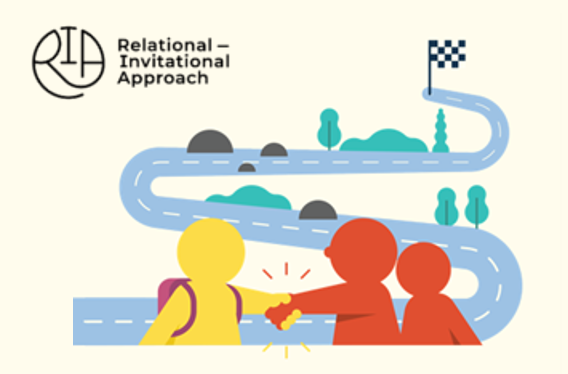

Research shows that family-centred care effectively improves health outcomes such as child development, parent-child interaction, parent well-being and capabilities, and family functioning1,2. Family involvement in the decision-making processes of treatment is particularly key to managing child developmental issues requiring long-term care.
Delivering family-centred care for children requires working closely with care providers and parents; equipping them with skills to effect change in a child’s daily routines, and to teach the child new skills and behaviours at home or in school. In addition to possessing content knowledge, practitioners also need to harness the soft skills of working with patients and their caregivers, to enable them to clearly elicit concerns and set goals that matter to the family.
Overcoming barriers to elicit change
This can be difficult to do well – especially if caregivers lack an understanding of their child’s needs, believe that the child will “grow out of difficulties with time” or have a busy work schedule, elderly parents or other children to care for, and other barriers that hinder them from embarking on the change process. These situations are common when working with families and highlight how explanation or prescriptive advice alone might not always be sufficient to motivate caregivers to change their behaviours.
The Relational-Invitational Approach (RIA) is a professional practice framework for health and community care practitioners to intentionally invite caregivers and adults involved in the care of children, to collaborate towards effecting and maintaining behavioural changes necessary for optimal outcomes in the family.
Developed by Mr Warren Cann from the Parenting Research Centre, Australia, it provides a wide range of step-by-step tools, strategies and best practices to encourage practitioners and caregivers to build trust and respect, and form an egalitarian relationship towards sustainable change.
Challenges in practicing family-centred care
Working closely with caregivers on a family-centred approach to child development for more than 25 years, KK Women’s and Children’s Hospital (KKH) has observed the following common challenges:
Professional provider:
- Tendency to prescribe – A common issue experienced by professionals in engaging and involving caregivers in the intervention process, is a tendency to prescribe strategies and tell the family what to do from the stance of an expert in child development, which may cause practitioners to miss out on first asking and listening to the family’s needs and current situation.
- Lack of a structured framework – Well-intentioned practitioners may lack a structured framework to guide them in their practice of family-centredness and setting goals collaboratively.
Caregiver:
- Knowledge alone is insufficient for behavioural change – Behavioural change does not happen easily, and knowledge alone does not always result in action to change. For example, parents might be aware that prolonged exposure to screentime can worsen myopia but may not take active steps to decrease screentime usage.
- Difficulties in sustaining motivation for change – The motivation for change needs to be cultivated and often, the responsibility lies with the practitioner to do so. The starting point for this is a strong, collaborative relationship with the families we work with. As such, practitioners who work with patients and caregivers over multiple sessions would benefit most from RIA training.
RIA training programme for care practitioners
The KKH Department of Child Development (DCD) runs the RIA training programme to provide a structured framework to support health and community care practitioners in engaging families they work with. It is rooted in the foundations of adult capacity building, family-centred practice, a strengths-based approach, and taking on the role of a coach.
The programme helps to orientate practitioners to use a more collaborative and intentionally invitational approach to work with caregivers and other adults. It is also useful to help practitioners navigate issues relating to difficulties in engaging parents and identify explicit strategies for problem solving.
The RIA training programme comprises:
- A two-day workshop introducing the framework and an online learning component that covers foundational principles of the framework (Table 1) to the six phases of work (Table 2), to guide a collaborative relationship with the patient and caregiver.
- Post-workshop support by RIA facilitators, to help practitioners to identify practice issues and apply the framework to break these down into individual components and work through them during practice group sessions.
| Table 1. Principles of the RIA framework | Table 2. Six phases of the Relational-Invitational Approach |
 |
 |
To date, more than 200 practitioners in Singapore ranging across professions including allied health professionals, doctors, nurses and learning support educators, have benefited from the programme.
Join the Relational-Invitational Approach (RIA) Training Programme
Register for upcoming RIA training sessions in 2026. For queries or indication of interest, please reach out to the team at ria@kkh.com.sg.

References
|
 |
Dr Dorcas Yap Fen Fung, Principal Psychologist, Department of Child Development, KKH Dr Dorcas Yap is the Project Lead for the Relational-Invitational Approach (RIA) and part of the Developmental Support Learning Support (DS-LS) Consultancy Team. Her research interests are in applied research in the areas of parenting and literacy assessment and intervention. A registered psychologist for close to 15 years, Dorcas completed her Joint Doctorate in Special Education from University of California, Berkeley, and San Francisco State University. |
 |
Rachel Ong, Principal Speech Therapist, Department of Child Development, KKH Rachel is the co-lead in the RIA team. Her areas of interest include bilingual language learning in children with developmental disorders as well as promoting family-centred practices in the healthcare setting. Rachel completed her Bachelors of Speech Science at the University of Sheffield, England. |

Stay Healthy With
© 2025 SingHealth Group. All Rights Reserved.
















